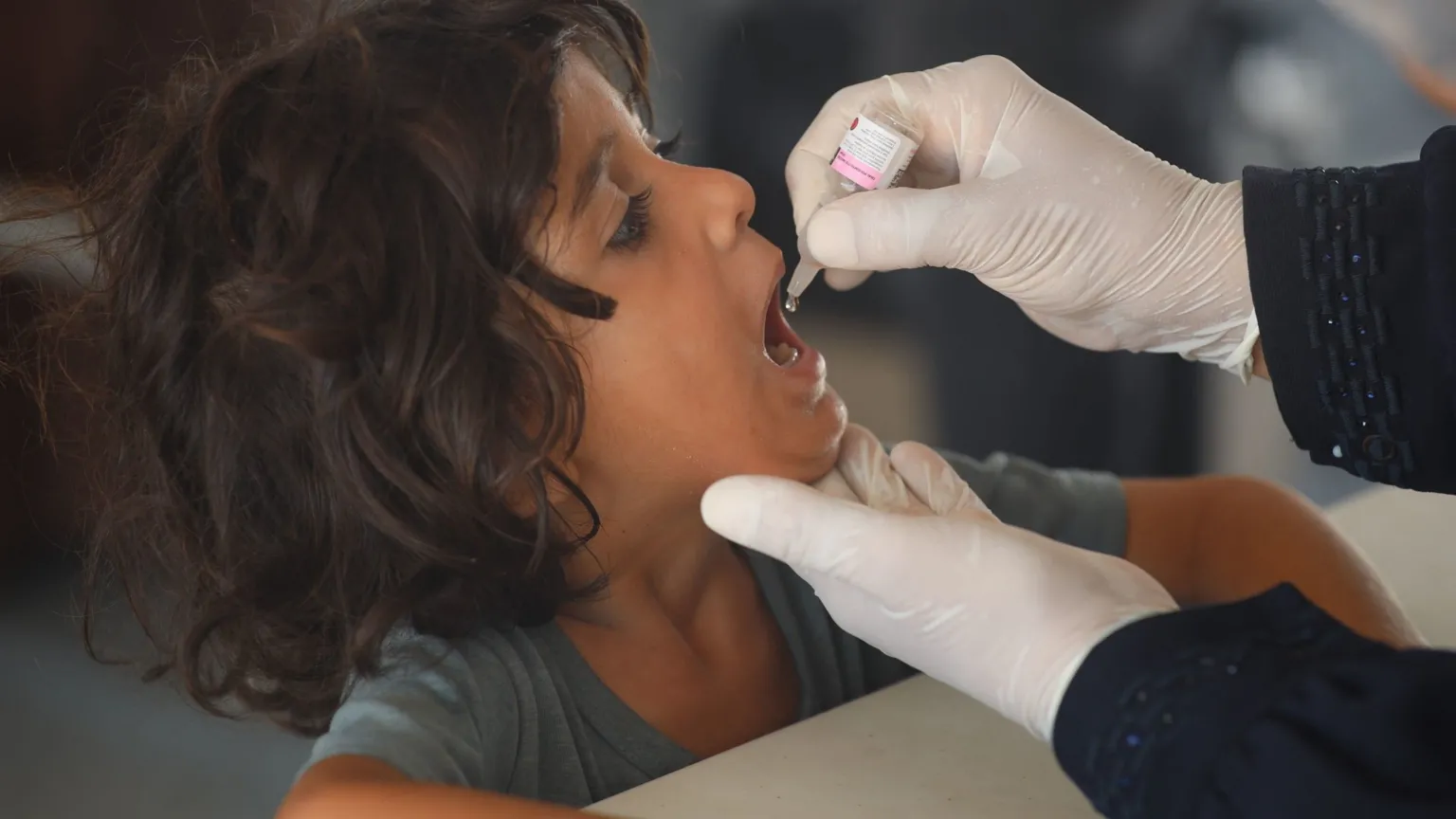In a remarkable achievement for global health efforts, the World Health Organization (WHO) has reported that its recent polio vaccination campaign in Gaza has surpassed its initial targets. The campaign, launched with the aim of curbing the spread of polio after a recent outbreak, has managed to reach more children than anticipated in its first two days.
Successful start to the campaign
Dr. Rick Peeperkorn, WHO Representative in the Palestinian Territories, announced that 161,030 children under the age of 10 were vaccinated in the first two days of the campaign – exceeding the target of 156,500. This unexpected success is attributed to the underestimation of population density in the territory, which led to a higher number of vaccinations than initially estimated.
The vaccination campaign is part of an emergency response following the first confirmed case of polio in Gaza in 25 years. The case involved a 10-month-old child who was partially paralysed by the virus, necessitating urgent action to prevent further spread.
Challenges and local cooperation
The success of the campaign so far is partly due to agreements between Israel and Hamas that allow for local pauses in fighting. These ceasefires are designed to provide safe time for health workers to administer vaccines. The pauses are scheduled from 06:00 am to 15:00 pm local time and have been conducted in phases in different areas of Gaza.
The first phase, which began in Deir al-Balah and Khan Younis provinces, is due to move to Rafah province on Thursday. The campaign will then move to northern Gaza and Gaza City. Dr Peeperkorn said these pauses were “going well” but acknowledged there were still logistical challenges to overcome.
Ongoing efforts and future plans
Despite the progress, the campaign is not over yet. At least ten more days of vaccination efforts remain for the first round, while a second round is scheduled to begin in four weeks to ensure widespread coverage. The goal is to vaccinate a total of 640,000 children, with the aim of achieving at least 90% coverage to effectively stop polio transmission within Gaza and prevent its spread to neighboring areas.
Dr. Peeperkorn said negotiations are ongoing to address the issue of children living outside the areas agreed for the pause. Ensuring that these children also receive vaccination is a critical component of the campaign.
The importance of vaccination
The polio virus is highly contagious and can spread through contaminated water and sewage. It mainly affects children under the age of five and can cause serious health problems such as paralysis and, in some cases, death. The re-emergence of polio in Gaza is attributed to disruptions in vaccination programmes and damage to water and sanitation infrastructure caused by the ongoing conflict.
Humanitarian groups have highlighted that the war has severely impacted the region’s ability to maintain routine vaccination programmes and ensure proper sanitation. This disruption has created a vulnerable population, increasing the risk of the disease spreading.
Personal stories and community impact
The impact of the polio outbreak has been profound on families living in Gaza. Niven, the mother of Abdulrahman Abu Judayan, a partially paralysed child, shared her heartbreaking experience. Her son was scheduled for a routine vaccination on October 7, the same day Hamas attacked Israel, followed by a military response.
Niven expressed her guilt and frustration, saying that circumstances prevented her from getting her son vaccinated on time. She hopes for the possibility of her son receiving treatment outside of Gaza, she wants him to live and walk like other children.
Looking Ahead
As the vaccination campaign continues, WHO and its partners are focused on achieving their goals and addressing the challenges that lie ahead. The situation in Gaza underlines the urgent need for coordinated international efforts to prevent the spread of diseases and protect vulnerable populations.
The success of the campaign so far is a testament to the resilience and dedication of health workers and organisations working under challenging conditions. With continued support and collaboration, there is hope that Gaza will be able to overcome this outbreak and ensure a healthy future for its children.
